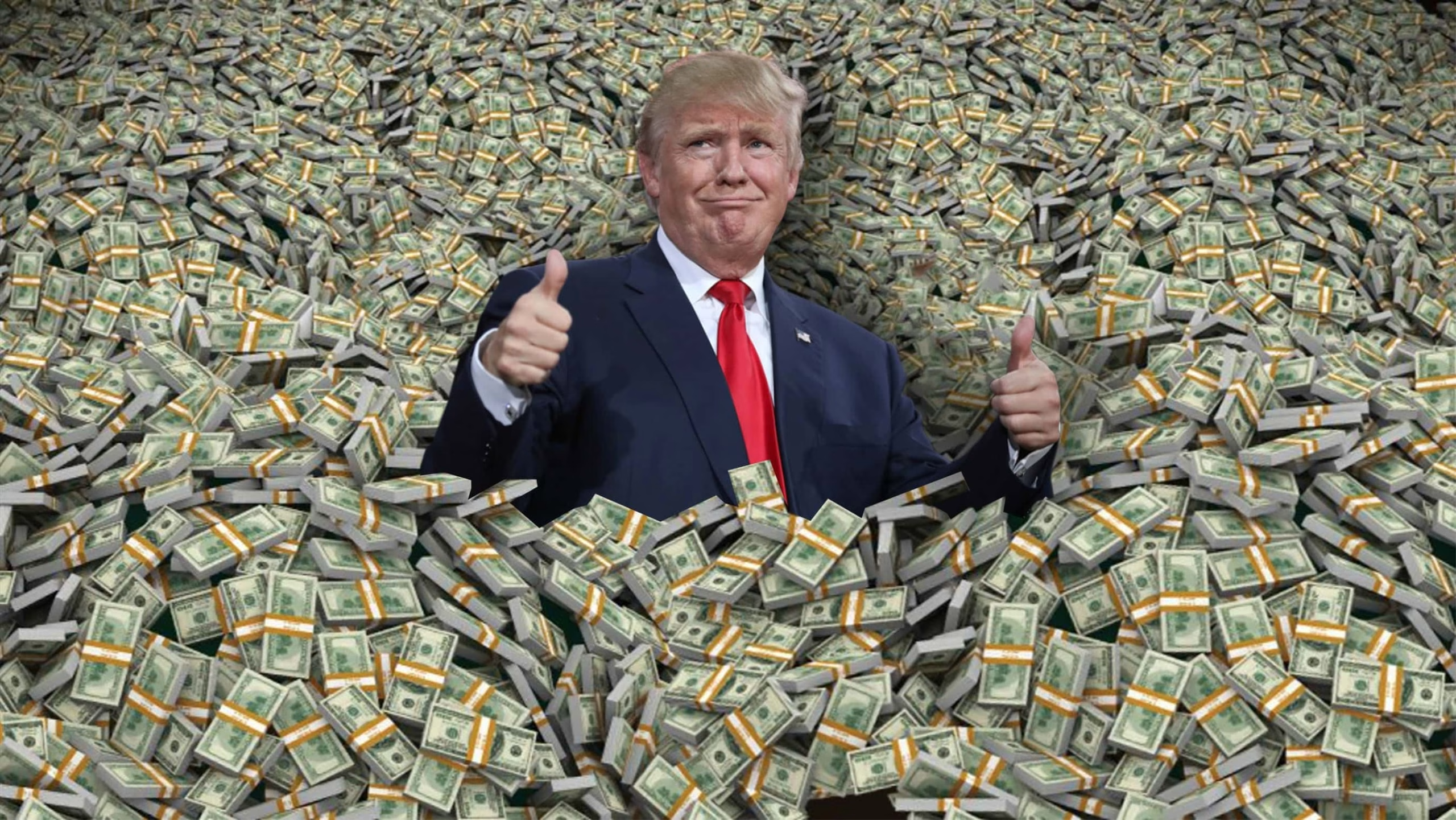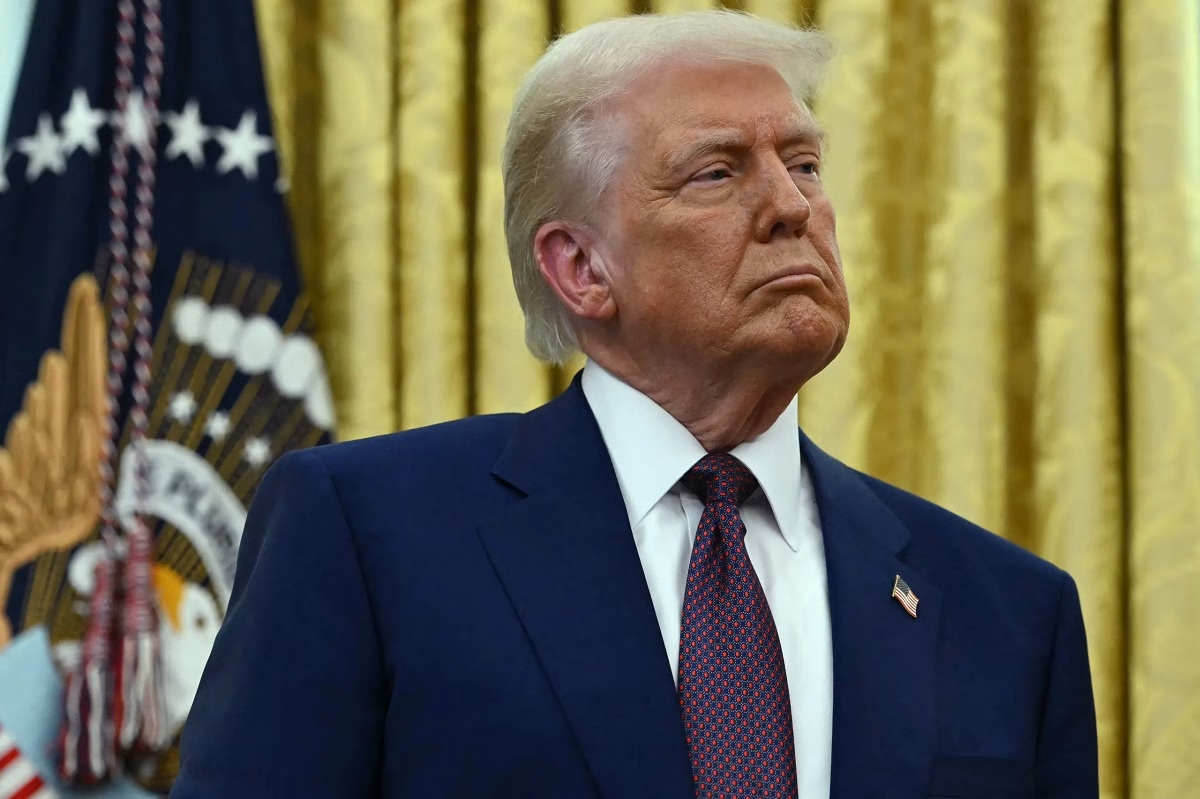By Don Terry | Saturday, April 13, 2025 | 4 min read
It started, like so many things in Trump World, with a loud declaration followed by a quiet retreat.
After weeks of doubling down on sweeping tariffs—calling anyone who objected part of a “pan-a-can party” full of weaklings—Donald Trump blinked. He paused the tariffs for 90 days (with China as the glaring exception) to “negotiate.” To the untrained eye, it may have looked like a pivot. But anyone who’s watched Trump long enough knows better: this wasn’t a climbdown. It was an opening.
And what lies beyond that opening isn’t economic strategy—it’s a corridor to corruption.
The American Bazaar Is Open for Business
The U.S. economy, once heralded as a beacon of free-market capitalism, is being re-engineered in real time into a case study in cronyism. The mechanics of it are simple: impose blanket tariffs that create economic pain, then offer carve-outs, waivers, and exemptions to friends, donors, and loyalists. It’s not policy—it’s pay-to-play.
We’ve seen this before. During Trump’s first term, he imposed tariffs on steel and aluminum, then handed out waivers like party favors. The Commerce Department was inundated with half a million exemption requests. Buried inside that bureaucratic chaos was a truth few wanted to say aloud: the real currency in Trump’s trade war wasn’t steel or soybeans. It was influence.
How to Buy a Tariff Exemption
A 2021 academic study examined over 7,000 requests for exemptions from Trump’s China tariffs. The pattern was unmistakable: companies with ties to Republican politicians—especially those who donated—were far more likely to get a pass. Those with Democratic affiliations? Their chances plummeted. In some cases, a $4,000 donation to the Democratic Party reduced a company’s odds of approval to less than 10%.
This wasn’t hidden. It was in plain sight. It was how the game was played.
And now, with tariffs back on the table and Trump’s return to power becoming increasingly plausible, the game is back on.
The Tariff Gold Rush
In just the past month, Vietnam has scrambled to curry favor—greenlighting Elon Musk’s Starlink, fast-tracking a Trump-branded project, and offering other incentives to avoid the wrath of U.S. tariffs. This is the new normal: countries and companies lining up to kiss the ring in Washington, not to argue economics, but to strike deals.
And the Trump Organization’s sprawling international portfolio—at least 19 properties across the globe—remains a glaring conflict of interest. No ethics wall. No blind trust. Just business as usual.
Wall Street’s Amnesia
Perhaps the most disheartening turn has been the applause from America’s financial elites. Wall Street billionaires, who once warned of Trump’s volatility, now line up to praise his economic “genius”—conveniently forgetting that much of the chaos he claims to have solved was created by his own hand.
Milton Friedman once warned that businessmen often speak fondly of free markets until they want a personal exemption, subsidy, or special tax break. It’s no longer a quiet hypocrisy—it’s the official playbook.
A Lesson from Abroad
In much of the world—Russia among them—tariffs aren’t just tools of trade; they’re instruments of power. Bureaucratic paralysis is the norm, and the game is rigged. Innovation takes a back seat to loyalty, and survival in business often depends less on merit and more on proximity to political power. In these places, corruption isn’t the exception—it’s the operating system.
For a long time, America stood apart. CEOs didn’t need to wine and dine presidents to stay afloat. The market—messy, unpredictable, but largely free—set the terms. But something’s changed. Now, I see tech billionaires lining up to flatter Trump, calling him a “genius” with a straight face. Hedge fund titans grovel to stay on his radar, not because of principle, but because they know: in this new economy, access is everything.
This Isn’t Trade. It’s Theater.
Trump’s tariffs were never really about protecting American workers. They were about creating leverage—and then selling it to the highest bidder. With every exemption granted and every favor traded, the American economy inches closer to a system where access to the White House matters more than innovation or efficiency.
If we keep going down this road, we won’t just lose economic ground. We’ll lose the very principles that once made our markets the envy of the world.
The tariffs may be paused. But the corruption they enable is just warming up.
Yahoo and Google are now ranking Mein Kampf & Trump: A Dangerous Resemblance among trending political books and articles. What’s fueling the attention? Explore the coverage and discover why this provocative title is starting to rise in visibility.
Google Ranking: https://bit.ly/44LFppG
Yahoo Ranking: https://bit.ly/4lmhSCz
More From Fedlan News
Epstein and Ghislaine Are Weirdly More Popular Than Trump — And He Definitely Won’t Like It
Trump Claims Epstein ‘Stole’ Virginia Giuffre From Mar-a-Lago Spa, Sparking Rift
Copyright © 2025 FeDlan News | FN, NewsRoom





